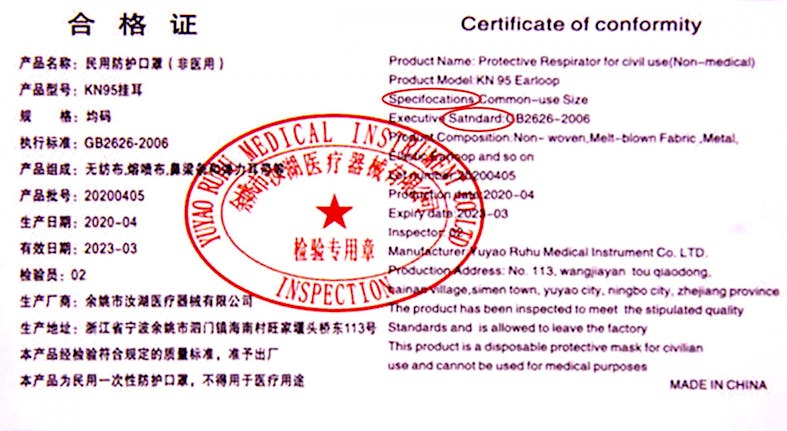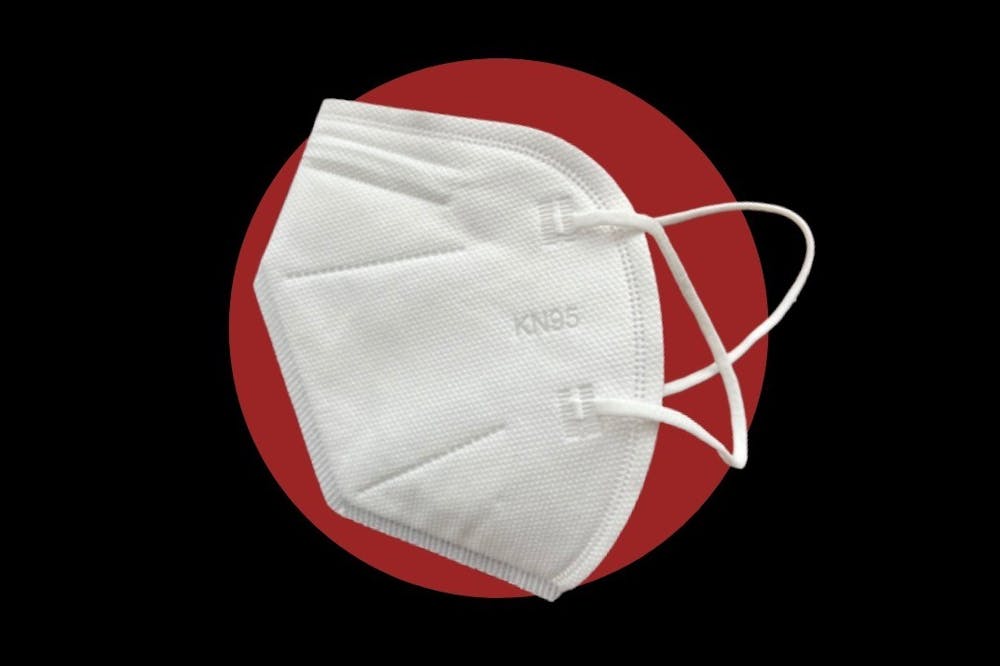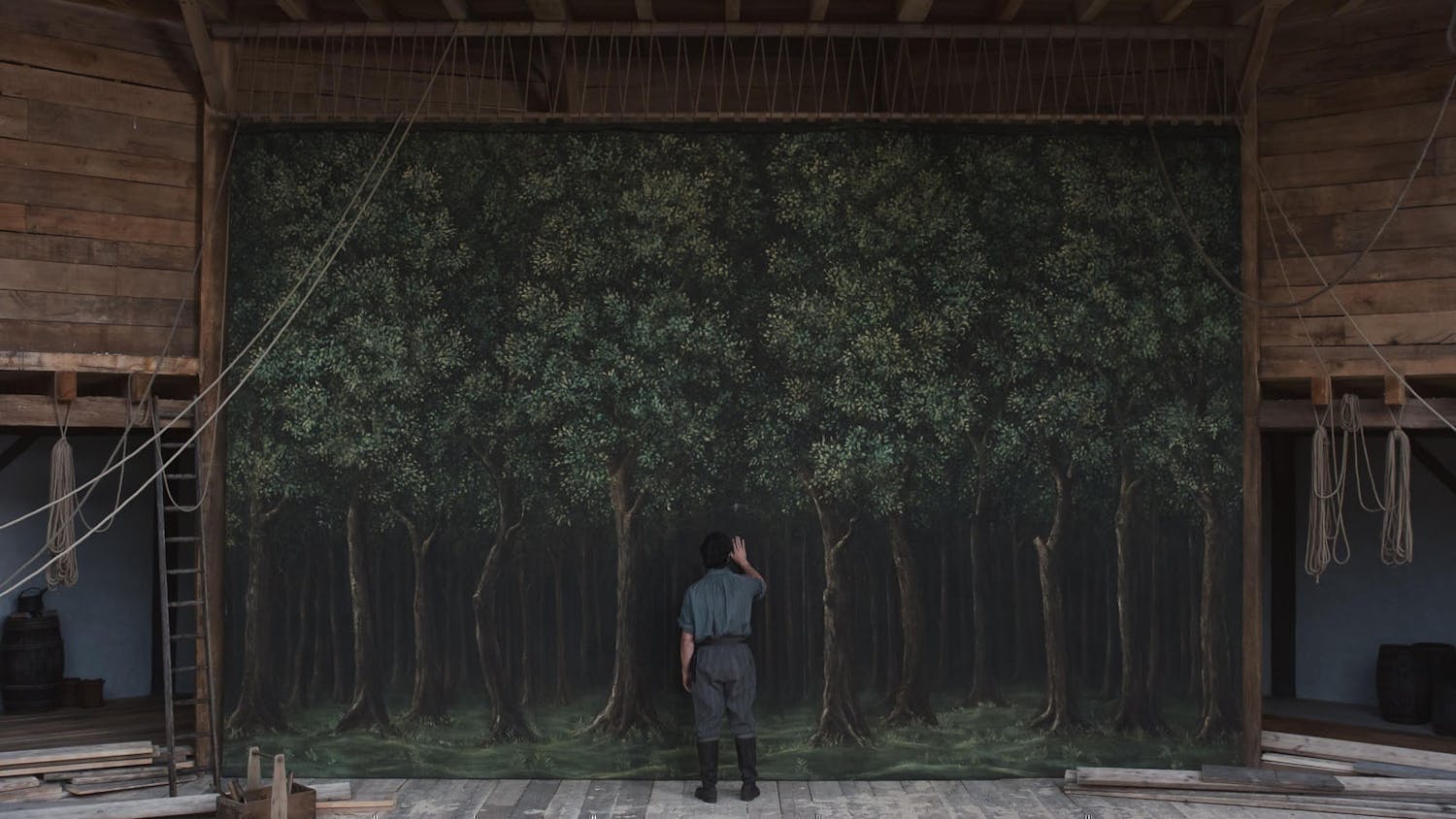American University unknowingly distributed counterfeit KN95 masks to the student body during the first week of in-person classes, an Eagle investigation found.
The authenticity of the masks was thrown into question after The Eagle identified several inconsistencies between international standards for KN95 masks and those being distributed on campus. In a Friday interview, Matthew Bennett, the University's chief communications officer, confirmed that despite conducting a “thorough procurement process” to secure legitimate KN95 masks, the ones distributed by the University “did not meet the standards that we were promised.”
“Once the information became clear that the first batch did not meet those standards, we are taking immediate steps to remedy that situation,” Bennett said.
Bennett could not provide specifications on what standards the University relied on when selecting KN95 masks by the time of publication.
Bennett said the University only became aware of the issue after receiving concerns from the community. The University has since ordered a new batch of KN95 masks from the same vendor, which will be checked before distribution and available to students starting Monday, Bennett said.
W.B. Mason, an office supply company and AU’s mask vendor, faces allegations of selling fake N95 masks at inflated prices in a class action lawsuit.
W.B. Mason was unable to provide a comment by the time of publication.
The Centers for Disease Control and Prevention estimates that approximately 60 percent of KN95 masks it evaluated in 2020 and 2021 did not meet the standards they were intended to meet, which makes identifying authentic masks difficult even for experts. The CDC doesn’t approve KN95 masks, instead relying on an international standard established by China. This standard requires that manufacturers print a code that reads “GB2626-2019” directly on the mask, which indicates that it provides the required level of protection; a code of “GB2626-2006” is also acceptable for masks produced before July 1, 2021.
Masks obtained from the University’s on-campus distribution locations at Bender Library, the School of International Service and Mary Graydon Center did not contain any such code.
Dr. Amesh Adalja, an infectious disease expert at Johns Hopkins University, said he doubted whether the masks are authentic based on photos provided by The Eagle.
“There clearly isn't enough there to be able to say with confidence that these are authentic KN95s,” Adalja said. “It may be the case that they are [authentic] but clearly the guidance that the CDC provides raises some doubts when you apply them to these masks.”
Adalja said the biggest risk of wearing a fake KN95 mask lies in the wearer’s belief that they are more protected from the coronavirus than they actually are, which could influence the level of social exposure they engage in.
Packaging for the KN95 masks obtained by The Eagle contains a “certificate of conformity” that identifies a Chinese manufacturer and China’s GB2626-2006 standard code, but the certificate also contains several spelling errors, a factor the CDC identifies as a “warning sign” of counterfeit masks.

Adalja suggested that the University rely on guidelines provided on the CDC’s website to have the highest degree of confidence in mask authenticity.
ProjectN95 spokeswoman Jana Sanchez said her organization has “zero certainty” that the University’s KN95 masks are authentic because of the missing Chinese standard code. ProjectN95 is a nonprofit organization that vets personal protective equipment, including KN95 masks, for consumers and various local and state governments.
“I'm sure that the person who bought those for the University probably thought they were doing their very best for students, and we have to assume that their intentions were good,” Sanchez said. “But, you know, if it's me, I want to know where my mask comes from … how it was made and whether or not it's authentic.”





